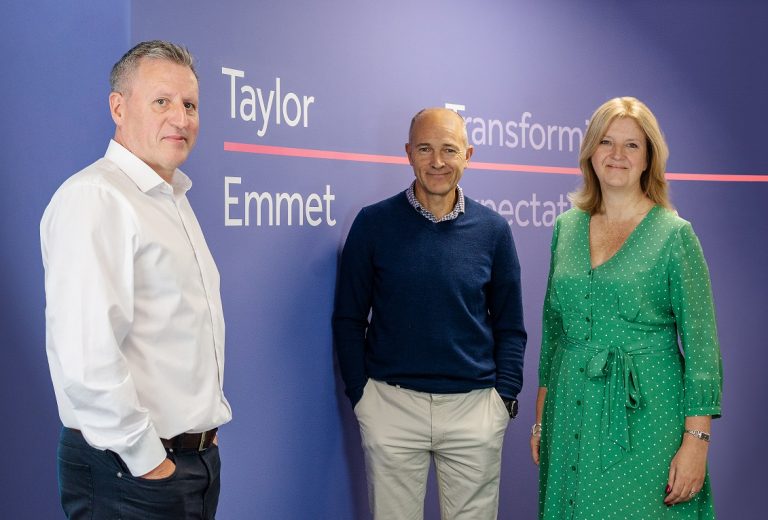Firms given powers to employ agency workers to fill gaps caused by strikes
As a result of a change in the law coming into force today, businesses can provide skilled agency workers to fill vital staffing gaps caused by industrial strike action.
With industrial action across a range of sectors threatening to disrupt crucial public services, the government has worked at speed to repeal trade union laws that restrict employment businesses from providing temporary agency workers to fill vacant positions caused by staff striking.
From today, businesses most affected by industrial action will be able to call upon skilled, temporary staff at short notice to plug essential positions. This will help to mitigate the disproportionate impact strike action can have both on the UK economy and society by allowing crucial services, that we all use on a daily basis, to continue functioning.
Today’s change in the law will apply across all sectors, for example, in education where strike action can force parents to stay at home with their children rather than go to work.
Business Secretary Kwasi Kwarteng said:“In light of militant trade union action threatening to bring vital public services to a standstill, we have moved at speed to repeal these burdensome,1970s-style restrictions.
“From today, businesses exposed to disruption caused by strike action will be able to tap into skilled, temporary workers to provide the services that allow honest, hardworking people to get on with their lives. That’s good news for our society and for our economy.”
While this law change will provide greater flexibility to businesses, companies will still be required to abide by broader health and safety rules that keep employees and the public safe. In addition, it will be the responsibility of individual businesses to hire temporary workers with the correct and suitable skillset and/or qualifications to meet the obligations of the role.
Secretary of State for Transport, Grant Shapps said:“While next week’s rail strikes will come too soon to benefit from this legislation, it’s an important milestone reflecting the government’s determination to minimise the power of union bosses.
“For too long unions have been able to hold the country to ransom with the threat of industrial action but this vital reform means any future strikes will cause less disruption and allow hardworking people to continue with their day to day lives.”
The government has also changed the law today to raise the maximum damages that courts can award against a union, when strike action has been found by the court to be unlawful. For the biggest unions, the maximum award will rise from £250,000 to £1m.
Work starts on new hotel for Leeds
GMI Construction Group has started work on the last piece of the Sovereign Square development in Leeds.
The project comprises a 12-storey, 305 room hotel on the last remaining plot within the flagship development site.
GMI is principal construction contractor, having been appointed by the Marrico LLP and Helios development JV partnership.
Around 190 jobs will be created during the construction phase, with the 140,000 sq ft hotel creating over 80 full-time jobs upon completion in 2024.
Interstate Group will operate the hotel under the dual Hyatt brands of Hyatt House and Hyatt place, providing short and long stay accommodation for both business and leisure guests. It will feature meeting rooms, an on-site gym, ground floor restaurant and bar extending externally into the public square, plus an independent rooftop bar with dedicated entrance.
The development, funded by Abrdn/UK Commercial Property REIT (UKCM), has been designed by Leeds-based DLA Architecture, which has taken its inspiration from surrounding architecture and Leeds’ merchandising and textile history.
Chris Weathers, GMI Construction Group’s commercial director, said: “Sovereign Square has become a landmark in the heart of the city, being the first new public space to have been developed in Leeds for more than a decade.
“This striking hotel is the last piece in the development’s jigsaw in what has become one of the most high-profile, sought-after destinations in the city. It will complete the extensive regeneration of the area and further enhance the other adjacent developments and public green space.”
Steve Ford, development director at Marrico, said: “This project will deliver a first class hotel in a prime location and helps address a shortage of quality accommodation for business and leisure visitors to the city. This is the final remaining development site in Sovereign Square, adjacent to the railway station and at the heart of Leeds’ vibrant business, retail and leisure sectors.”
James Dunne, head of UK transactions, real estate at Abrdn, added: “It’s fantastic to see the beginning of the realisation of so much hard work and commitment from all the parties involved in getting us to this start on site. The real hard work starts here though and it’s exciting to think of the premium product that is going to be delivered into the Leeds market by the excellent construction, development and professional teams entrusted with bringing the scheme forward.”
Lidget Lane Industrial Estate fully occupied as knives manufacturer takes final unit
Whittle Jones, managing agents acting on behalf of Northern Trust Company, have completed the letting of unit 12H at their Lidget Lane Industrial Estate in Thurnscoe to Premier Machine Knives.
The letting was completed on a 3 year lease agreement, and has resulted in the 13,000 sq ft estate now being fully let and home to 10 different businesses.
Premier Machine Knives manufacture and supply a wide range of products to meet the cutting needs of a variety of businesses, predominantly in the food industry including supermarkets, bakeries, dairies and seafood processors.
Alongside the food industry they also supply to manufacturing companies, such as automation, aerospace, medical, fabrics, plastics, paper, and cardboard. There are many industrial machines which use knives for various cutting processes.
Rob Asquith of Premier Machine Knives said: “The premises at Lidget Lane will help facilitate the continued growth of our business whilst still providing an efficient service to our clients.”
Lidget Lane is a development of 11 single storey workshop / industrial units located approximately 1 mile from the A635.
Clare Harrison, assistant management surveyor at Whittle Jones Yorkshire, said: “I am delighted to welcome Katherine and the team at Premier Machine Knives to Lidget Lane, which is now fully occupied. I am looking forward to seeing the continued growth of the business.”
Lincoln firm’s spuds form basis of cooking inspiration for more than 2,000 children
National potato supplier Branston will give at least 2,200 children across Lincolnshire a portion of spuds and recipes to inspire their cooking.
Lincolnshire County Council is running the Holiday Activities and Food (HAF) programme, which will support children in the region who are eligible for free school meals during the summer break. Backed by Branston, the initiative will help children and their families realise the versatility and economical nature of fresh potatoes.
The government-funded HAF programme supports thousands of children across the county, who are invited to attend fun activity sessions across 85 venues in Lincolnshire, including sports centres, community halls and schools.
Simon Telfer, HR director at Branston, said: “Getting involved with the local community is incredibly important for us. Providing food education from a young age ensures children are aware of how their food is grown and the best ways to cook it.
“As part of our support, we’re providing recipe cards with simple and tasty meals to help families stretch their spuds for maximum output. The recipes include bubble and squeak patties, creamy mackerel stuffed skins and plenty of helpful tips. There are tips on cooking in a microwave or on the hob, reducing the energy required for an oven and removing the barrier for those families that don’t have access to one.”
In addition to donating potatoes, Branston has also funded a series of cookery classes hosted by Eamonn Holmes, which has been set up through his social enterprise, GoGro. Eammon will present 20 sessions, sponsored by Branston, to children on the HAF programme, which will involve hands-on cookery demonstrations and education around ‘field-to-fork’ food.
Simon added: “It was important to us that we offered the children some skills and education as part of the programme. We’re pleased to have the involvement of Eamonn to build a buzz around food. The aim of the sessions is to get kids passionate about what they’re eating and showing them that a simple spud can be turned into a tasty meal.”
Firm seeks 15 Yorkshire companies for business start up accelerator programme
Start up accelerator Unrest has picked Sheffield as the base for its next programme to supercharge businesses – and wants to hear from consumer-driven companies across Yorkshire.
The accelerator, which ran its first programme in London and helped develop 16 businesses with goals including green agendas, diversity, fertility, improved mental health, will run its next hub from Sheffield and wants businesses from across Yorkshire to apply.
The South Yorkshire Unrest Programme will start in September, and annually aims to support up to 30 North England-based, consumer-driven startups which positively impact on people’s lives.
By supporting these start-ups in its first programme outside of London, Unrest hopes to tip the scales of investment and growth, accelerating businesses forward through workshops, one-to-ones, access to a similar business community and through exclusive opportunities with its partners.
It will be delivered in partnership with Capital Enterprise (UK) Limited and Barnsley Council, and is part-funded through the European Regional Development Fund.
Orr Vinegold, Unrest Founder, said: “We first started in London in 2021 to support and accelerate start-ups changing the world. We champion diversity of thought, background, and geography to support more businesses that reflect the makeup of our communities. And this is why we have chosen to expand to build our next impact accelerator programmes within South Yorkshire.
“Businesses that have a positive impact on the world, now hold the influence, power and potential to accelerate change and leave the planet better than they found it and make a meaningful difference.
“Consumer demand for impact-driven brands is growing at a record-breaking pace with investment in these companies increasing six-fold from 2011 to 2019 — reaching over £5bn a year by the end of the decade.
“Venture capital investors are avidly looking for purposeful brands with high growth potential — but none of the existing players are moving into the impact and consumer territory with a clear brand message — resulting in a shortage of investable start-ups in this space.”
In 2021, over 68% of all UK investment went solely to companies based in London, with the next largest investment region (the South East), receiving only 10%. This investment imbalance hinders start-up diversity and distribution of wealth within the UK. In contrast, less than 1% of all UK investment went to Yorkshire, despite amazing businesses growing out of the region.
Orr added: “Not only does the Unrest programme aim to target and improve this imbalance in opportunity – there’s a genuine flurry of purpose driven start-ups coming from Yorkshire and the North. Data shows that 20% of impact companies are started in Yorkshire.”
Cllr Robert Frost, Cabinet Spokesperson for Regeneration and Culture at Barnsley Council, said: “This is a brilliant programme for our region and for the TeamSY project, and we hope to see a number of Barnsley businesses benefit from this. The accelerator is great for supporting businesses already creating a positive impact and opening them up to better investment potential.”
Laura Bennett, Regional Lead, Capital Enterprise (UK) Limited, added: “Yorkshire is proudly supportive of social impact initiatives and mission-driven projects, and we have a long tradition of social enterprises founded here, working to support our communities and reduce inequalities.
“We are thrilled that Unrest are bringing their expertise, experience, and networks to the region to supercharge 30 mission-driven businesses to think big and act globally – taking South Yorkshire ingenuity and passion for social good to a national and international audience.”
Unrest will run the South Yorkshire Programme in tandem with its London programme, with crossover events. At the end of the programme, startups from South Yorkshire will be invited to London to pitch alongside their London cohort counterparts at an investor-filled Demo Day.
The last Unrest demo day saw over 100 investors on the guest list including Big Society Capital, Balderton Capital, Beringea, Saatchi Invest, Qventures and Mission Ventures.
Mr Vinegold added: “This programme focuses on exponentially growing the right businesses that deserve to make a difference. We’re dedicated to building the next generation of mission-driven companies, turning businesses into a force for good. We can’t wait to help accelerate the next cohort of start-ups from South Yorkshire that are looking to change the world.”
Further details: www.unrest.world
VINCI Building wins £70m Sheffield Forgemasters contract
VINCI Building has been appointed on an early works contract and pre-construction services agreement at Sheffield Forgemasters, worth more than £70 million.
The company will construct a new service road, undertake demolition works and services diversions at Sheffield Forgemasters’ Brightside Lane site to accommodate a new forging line.
The appointment marks the first phase of the wider investment, valued up to £400 million over ten years, to underpin critical defence assets at the engineering company’s Brightside Lane site, with construction of the UK’s largest open-die forging operation to install a 13,000 tonne forge-line.
Chris Winspear, regional director at VINCI Building, said: “We are delighted to have been awarded the contract to kick off the first phase of a significant investment into the company and to the wider benefit of the Sheffield City Region.
“Initially, VINCI Building will handle construction of a new access road onto Sheffield Forgemasters’ site, including all necessary service diversions and partial demolition of existing buildings.
“We will also undertake intrusive survey works and provide support with scheduling and risk management, engagement of supply chain and development of costs for the main construction works.”
The contract, covering the forging line installation, is set to run until 2025, when the new forge is commissioned and Sheffield Forgemasters’ existing 10,000 tonne press will be decommissioned.
Gareth Barker, chief operating officer at Sheffield Forgemasters, said: “This contract is a key milestone in our recapitalisation project, which will see up to £400 million invested across the site to first establish a new heavy forging-line and to then install 16 new machining centres to increase our capabilities as a world-leading engineering facility.
“Vinci Building will input into the current phase of the RIBA 3 design works which should promote buildability and development of the subsequent main-works contract to install a new, circa 140,000 sq ft building, to house the new forge-line.
“Further to this, we are looking to invest locally through our contracting partners as we launch the first phase of construction works.”
VINCI Building UK joins Turner & Townsend (Cost Management Services/Independent Quantity Surveyor and Principal Designer), Tetra Tech (Engineering Services Provider/Lead Designer) and JLL (Planning Consultant) on Sheffield Forgemasters’ recapitalisation project.
Sheffield Forgemasters recently announced that its new 13,000 tonne Mitsubishi press has been shipped from Japan and is now in secure storage prior to installation.
Sweet success as Candy Hero secures £500,000 investment
Bradford-based importer, distributor and retailer of foreign confectionary Candy Hero has received a further investment of £500,000 from NPIF – Mercia Debt Finance, which is managed by Mercia and is part of the Northern Powerhouse Investment Fund.
Founded in 2008 by brothers Frank and Leo Dillion, both former web designers, the West Yorkshire business has quickly grown in size and now stocks one of Europe’s largest ranges of mainstream American candy. It also sells British retro sweets, energy candy, Jelly Belly, Japanese snacks, gifts, and other novelty and specialist items, boasting a range of over 20,000 products.
NPIF first invested £250,000 in Candy Hero in 2020 when it was generating £5.7million in turnover. Since then, Candy Hero’s turnover has almost trebled to £15.7million in December 2021. A revenue increase of £3million is anticipated this year.
Candy Hero has moved to a 20,000 sq ft premises, which accommodates a larger stock selection in response to the growing demand from its business customers. In addition, this funding will support the business to create seven new roles and further capitalise on its position as one of the UK’s top three importers of foreign confectionary.
David Wright, investment manager at Mercia, said: “I’ve known Frank for four years, having worked with him so closely during that time. Naturally, I am very enthusiastic about their continued growth especially as this is a family-owned regional business. The co-founders, who are brothers, make a strong team who are committed to the continued investment into the business and its people. I look forward to seeing where this great regional business goes next.”
Frank Dillon, co-founder of Candy Hero, said: “We’ve experienced phenomenal growth over the past two years as our turnover almost trebled to £15million. The initial loan from NPIF – Mercia was the catalyst for this journey. I was delighted when NPIF and Mercia’s David Wright were able to support my request for an additional £500,000 of funding. This further investment has made a huge difference to the company and is supporting us as we drive the business forward, scale our operations and hire staff.”
Significant rebrand for leading Sheffield City Region law firm
Leading Sheffield City Region law firm, Taylor Emmet, has undergone a significant rebrand following a period of investment across the business.
The rebrand has seen the firm take the bold step to alter its name for the first time in its 150-year history. By removing the ampersand from the previous name, Taylor&Emmet, the firm aligns itself with its digital profile whilst modernising and future-proofing its identity.
The rebrand also sees the launch of an all-new website which will offer a modern experience, helping contribute to the firm’s promise to provide a first-class client service from the first interaction to the completion of a matter.
Steve Hinshelwood, Chief Executive Officer at Taylor Emmet said: “Previously if you were to ask clients about Taylor&Emmet you would get varied answers, from how they said our name, through to how we positioned ourselves in the market. With the Taylor Emmet brand we draw all that together in a simple, recognisable brand that shows our forward-thinking outlook.
“The removal of the ‘&’ is a seamless shift, giving us a single recognisable name and removing issues with digital platforms that many businesses will have experienced.
“Our new brand not only positions us as an approachable, efficient and forward-thinking firm but embraces our history and longevity within the Sheffield City Region.
“We have invested heavily in the business in the past couple of years, from IT infrastructure to training, benefits, and new modern office buildings. The rebrand brings all these elements together and provides a strong platform for Taylor Emmet to launch itself forward as we look to write the next chapter in our history.”
Taylor Emmet used Yorkshire-based On Fire agency to support the re-brand. Karl Lakin, Director at On Fire said: “Retaining elements from the colour palette was important to us, to maintain that all-important visual association with the brand equity.
“As the brand has always been about people, we have reinforced that with a human reportage photography that conveys real people working together with each other and the clients. But for us, dropping the ampersand was key; taking Taylor Emmet into a new modern era, whilst allowing us to convey many of the brand’s values and service level messages in a simple, memorable way.”
Proposed new rules will repeal hundreds of pieces of EU legislation and unlock UK investment, says Government
Legislation to enhance the competitiveness of the UK financial services sector and unlock tens of billions of pounds of investment across the UK economy has been introduced to Parliament today.
The Financial Services and Markets Bill repeals hundreds of pieces of EU retained law to deliver a comprehensive model of regulation for the UK – establishing a coherent, agile and internationally respected approach to financial services regulation that works in the interests of British people and businesses.
The Bill will implement the government’s vision for the sector that is open, green, technologically advanced and globally competitive – while maintaining high levels of consumer protection.
Chancellor of the Exchequer Nadhim Zahawi said: “Through the introduction of this Bill, we are repealing hundreds of pieces of burdensome EU regulations and seizing on the benefits of Brexit to ensure the financial sector works in the interests of British people and businesses.”
The Bill implements the outcomes of the Future Regulatory Framework Review, giving the financial regulators greater responsibility for setting the requirements for UK financial services, and for the first time, a new secondary objective to promote the growth and competitiveness of the UK economy including the financial services sector. This will complement the regulators’ existing objectives of ensuring the safety and soundness of firms, protecting and enhancing the integrity of the UK financial system, promoting competition in the interests of consumers, and ensuring that consumers receive an appropriate degree of protection.
The Bill also includes enhanced mechanisms for engagement with stakeholders and accountability, scrutiny and oversight of the regulators by Parliament and the Treasury. This includes a new ‘rule review’ power which will enable the government to direct the regulators to review their rules where it is in the public interest.
Grants could be a shot in the arm for construction companies
Councils across England could soon receive grants to help transform underused and derelict sites.
Under plans announced by the Government grants would refund the costs of Landfill Tax where it acts as a barrier to redeveloping brownfield and contaminated land.
A four-week Call for Evidence will seek views on the need for, and design of, a scheme to support councils overcome the Landfill Tax burden.
The move – which could happen as early as this Autumn – would help build get businesses building more homes and businesses on brownfield sites, protecting the environment and public health.
Environment Minister Lord Benyon said: “This grant will help councils build new homes and businesses on derelict eyesore sites – delivering more homes, and regenerating towns and cities. Landfill tax has done a fantastic job in preventing unnecessary waste – but it’s important it doesn’t act as a barrier to regeneration.”
Exchequer Secretary to the Treasury Alan Mak said: “Ensuring that communities across England have the tools to transform their local areas is central to our levelling up mission. This bold new scheme could remove unintended barriers for local authorities who want the best for their communities, whilst protecting our natural environment from contamination.’
Landfill tax was introduced in 1996 to encourage a shift away from sending waste to landfill and towards recycling, reuse and recovery. It is currently valued at £98.60 per tonne with a lower rate of £3.15 for the least polluting material.
Landfill tax is widely regarded as being successful, with local authority waste sent to landfill in England falling by 90% since 2000. However, in some cases where remediating contaminated land is not possible without sending waste to landfill, the tax can act as a significant barrier to redevelopment.
By targeting grants in instances where Landfill Tax would otherwise have prevented remediation on commercial terms, any scheme would seek to be cost-neutral.
The Call for Evidence welcomes views on how to ensure a grant scheme would not undermine the waste hierarchy or incentivise illegal dumping. Under plans, applicants would need to demonstrate that use of landfill is reasonably necessary, and steps have been taken to minimise the quantity of waste that will be landfilled.












